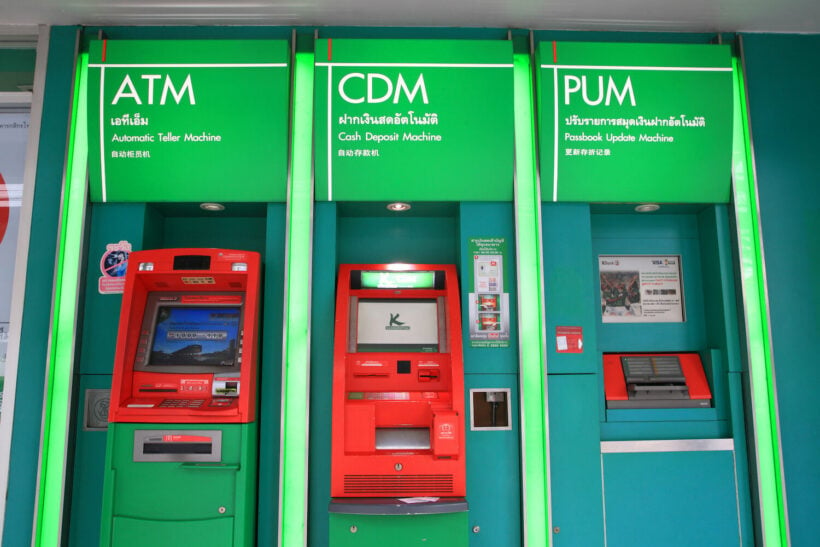Thailand introduces new rule for cash deposit machines

On November 15, people depositing cash into their bank account via cash deposit machines (CDMs) in Thailand will have to insert their credit or debit card and PIN to verify their identity.
The Anti-Money Laundering Office (AMLO) said the new identification requirement is a safety measure to prevent money laundering earned from drug trafficking, gambling, and other criminal activity.
Bank account holders who do not have a debit or credit card can deposit money inside a branch of their said bank, according to AMLO.
Currently, you don’t need to verify your identity to deposit money in Thailand. If you know someone’s account number, you can deposit cash into their account at a CDM belonging to their bank. Alternatively, you can use a credit or debit card to deposit money at a CDM.
AMLO hopes the new measure will prevent ‘dirty cash’ from being swept under the rug in Thailand. Money laundering is rampant in Thailand due to the country’s porous borders, high levels of corruption, and uneven law enforcement.
Although, some customers are complaining that the new measure is inconvenient and a financial burden because they will need to apply for and pay for a debit card.
So far, 11 commercial banks have officially come on board with AMLO’s CDM identification measurement: Krung Thai Bank, Siam Commercial Bank, Kasikorn Bank, Bangkok Bank, Bank of Ayudhya, TMB Thanachart Bank, UOB Bank, CIMB Bank, the Government Savings Bank, the Government Housing Bank and Kiatnakin Phatra Bank.
If you want to open a Thai bank account, read The Thaiger’s guide ‘How to Successfully Open a Bank Account in Thailand‘ to find out what documents you need and which bank to choose.
Latest Thailand News
Follow The Thaiger on Google News:


























